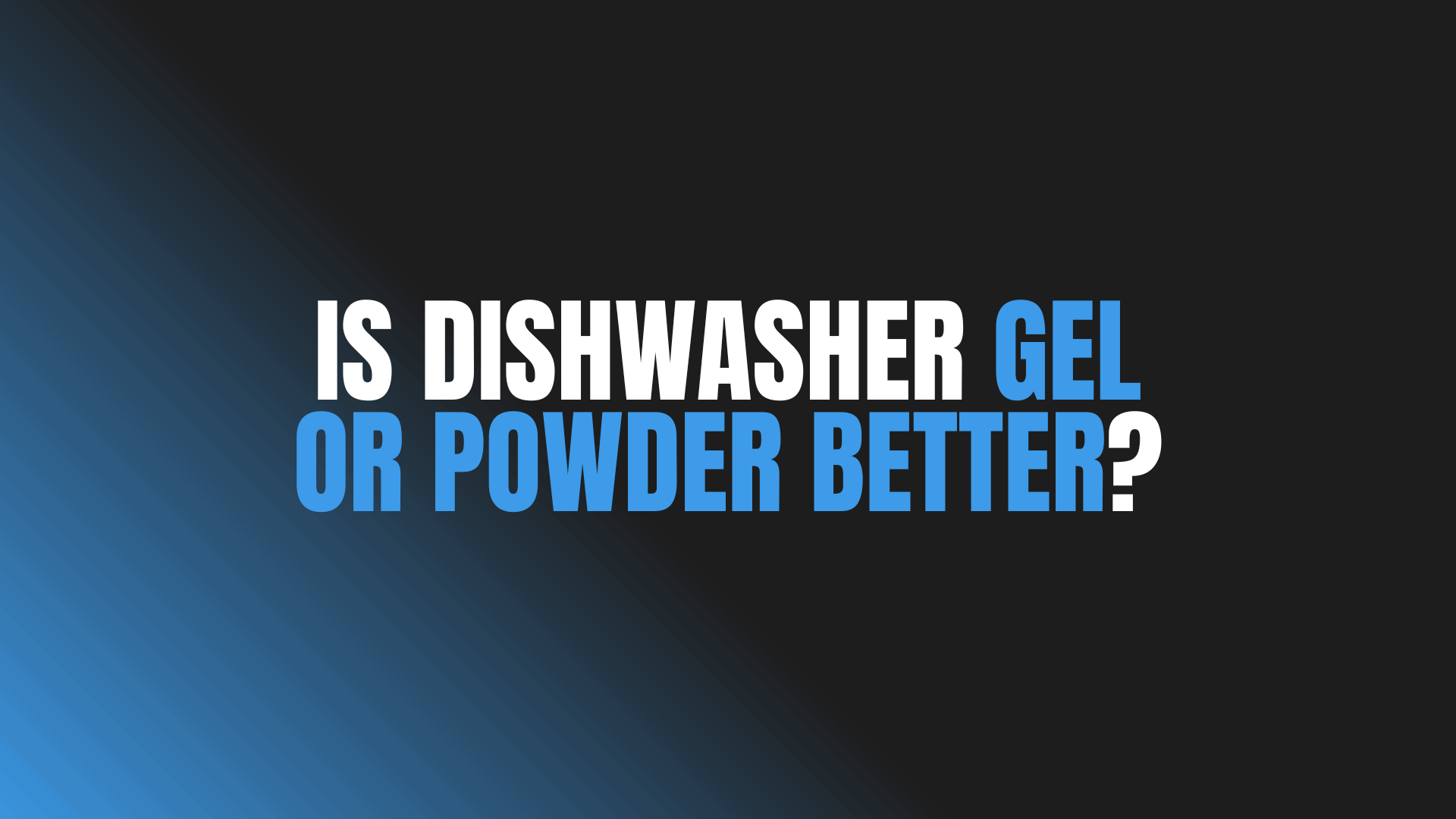
Question: Is Dishwasher Gel or Powder Better?
Answer: Whether or not dishwasher gel or powder is better depends. Gel dissolves faster, excelling in shorter cycles. Powder is cheaper and better with hard water. Both clean effectively, so personal preference and water conditions matter most.
Dishwasher Detergent: Gel vs. Powder
Choosing the right dishwasher detergent can feel overwhelming. Supermarkets offer a dizzying array of options, from gels to powders and even tablets. This article examines the age-old question: is dishwasher gel or powder better? We’ll analyze each type’s strengths and weaknesses, considering factors like cleaning power, cost, and environmental impact. This information will empower you to make the best choice for your dishes and your household.
We’ll explore the science behind how each detergent type works, dispelling common myths and providing practical tips for optimal dishwashing. Whether you’re a seasoned dishwasher user or a newcomer, this guide offers valuable insights to help you achieve sparkling clean dishes every time.
Cleaning Power: Gel vs. Powder
Both gel and powder detergents aim to remove food particles and grease from your dishes. They achieve this through a combination of chemical reactions and physical scrubbing action. Powder detergents often contain bleach, which helps remove stains and sanitize dishes. Gel detergents typically rely on enzymes to break down food particles, making them effective against a wider range of food stains.
Powder’s abrasive qualities can provide extra scrubbing power for stuck-on food. Gel’s concentrated formula often delivers a powerful clean in smaller doses. Ultimately, the “better” choice depends on the types of food soils you frequently encounter.
Please visit this page to read more about Blue Kitchen Refacing
Related Article: What Cleans Better, a Dishwasher or Hand Wash?
Related Article: Is It Cheaper to Run the Dishwasher or Wash by Hand?
Environmental Impact: Gel vs. Powder
Powder detergents typically come in cardboard boxes, which are easily recyclable. Gel detergents often use plastic bottles, which may not be as readily recycled. Some gel detergents offer refills in pouches, reducing plastic waste. Powder detergents also often have a simpler chemical composition, potentially minimizing their environmental footprint.
Consider the packaging and the ingredients when assessing environmental impact. Look for eco-friendly certifications or brands committed to sustainable practices. Small changes in your detergent choice can contribute to a healthier planet.
Convenience and Ease of Use
Gel detergents often come in pre-measured doses, simplifying the dispensing process. This reduces the risk of using too much or too little detergent. Powder, while requiring measuring, offers flexibility in adjusting the amount used based on the load size and soiling level. Spills are more common with powder, potentially creating mess.
Gel’s pre-measured doses streamline the washing process and minimize mess. Powder offers greater control over dosage, allowing for customization based on specific needs. Choose the format that aligns best with your personal preferences and lifestyle.
Specific Dishwashing Needs
Hard water requires specific detergent formulations to prevent mineral buildup on dishes. Some powders contain phosphates that help combat hard water issues, while others rely on alternative ingredients. Gels can also address hard water challenges, but their effectiveness varies by brand and formulation. Check product labels for hard-water compatibility.
For delicate items like glassware or antique china, gel detergents are generally gentler. Their lower abrasiveness reduces the risk of scratching or etching these delicate surfaces. Powder, while effective at cleaning tough messes, may pose a higher risk of damage to delicate dishware.
Addressing Hard Water
Hard water requires special consideration when selecting a dishwasher detergent. Look for products specifically designed for hard water conditions. These often include ingredients that prevent mineral buildup and ensure optimal cleaning performance.
Caring for Delicates
Delicate dishes demand gentle cleaning solutions. Gel detergents are often a safer choice for delicate items due to their lower abrasiveness. Avoid using powder detergents on delicate dishware to prevent potential scratching or damage.
Conclusion: Making the Right Choice
The “best” dishwasher detergent depends on your individual needs and priorities. Powder generally offers a cost-effective cleaning solution, especially for heavily soiled dishes. Gel provides convenience and is often gentler on delicate items. Consider factors such as your budget, environmental concerns, and the types of dishes you typically wash.
By carefully weighing the pros and cons of each detergent type, you can make an informed decision that leads to sparkling clean dishes and a satisfying dishwashing experience. Experimenting with different options can help you find the perfect balance of cleaning power, convenience, and cost-effectiveness for your household.

Blue Malue Get in touch with Blue here.
